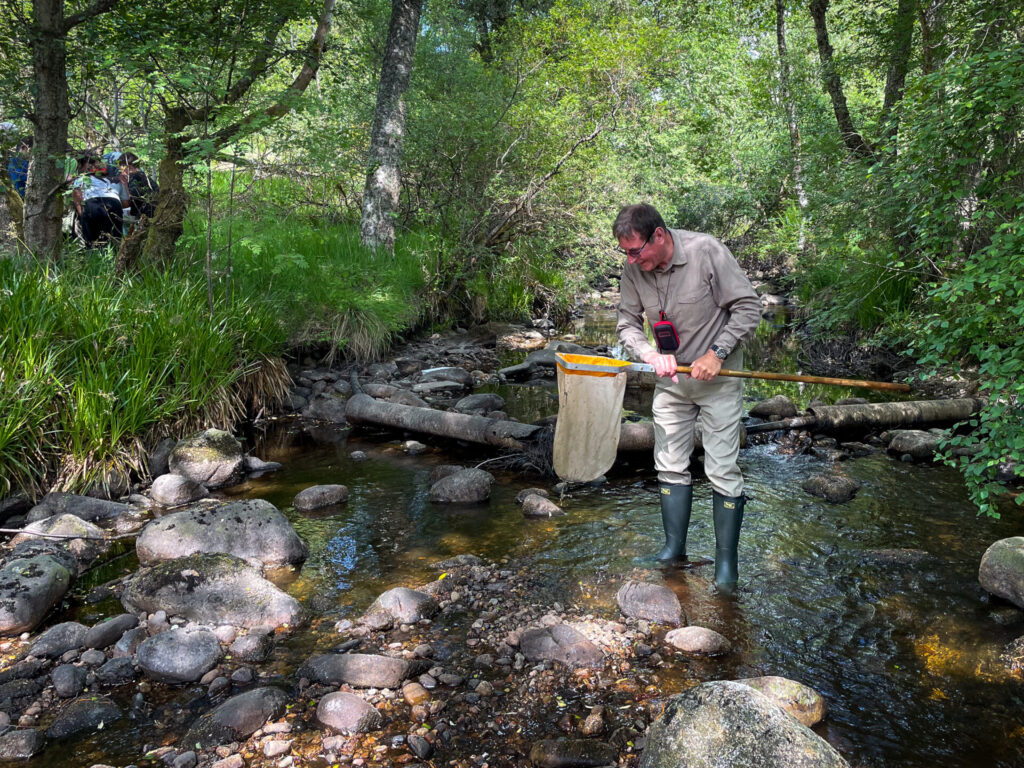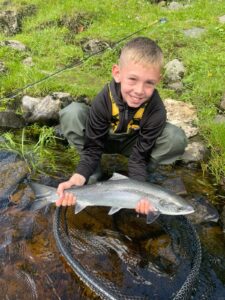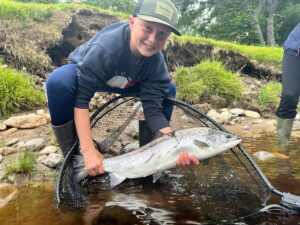We are thrilled to share a memorable chapter from this year’s “Salmon in the Classroom” project.
Our annual “Salmon in the Classroom” project encourages pupils to take a hands-on role in salmon development. Classrooms are equipped with incubators housing salmon eggs from our hatchery. Pupils nurture these eggs until they hatch, fostering an interest in and emotional connection with their salmon. The project culminates in releasing the young fry into a nearby burn, further cementing this bond.
This hands-on programme is designed to connect local primary schools with the rich biodiversity of the River Spey, focusing on the life cycle of salmon, their importance to the local economy, and the significance of conservation.
This year, we were fortunate to have two schools participating, Grantown and Newtonmore Primary Schools. Unfortunately, due to adverse weather conditions, Newtonmore P5 and P6 pupils couldn’t plant their eggs in the burn. Instead, an additional field trip was organised.
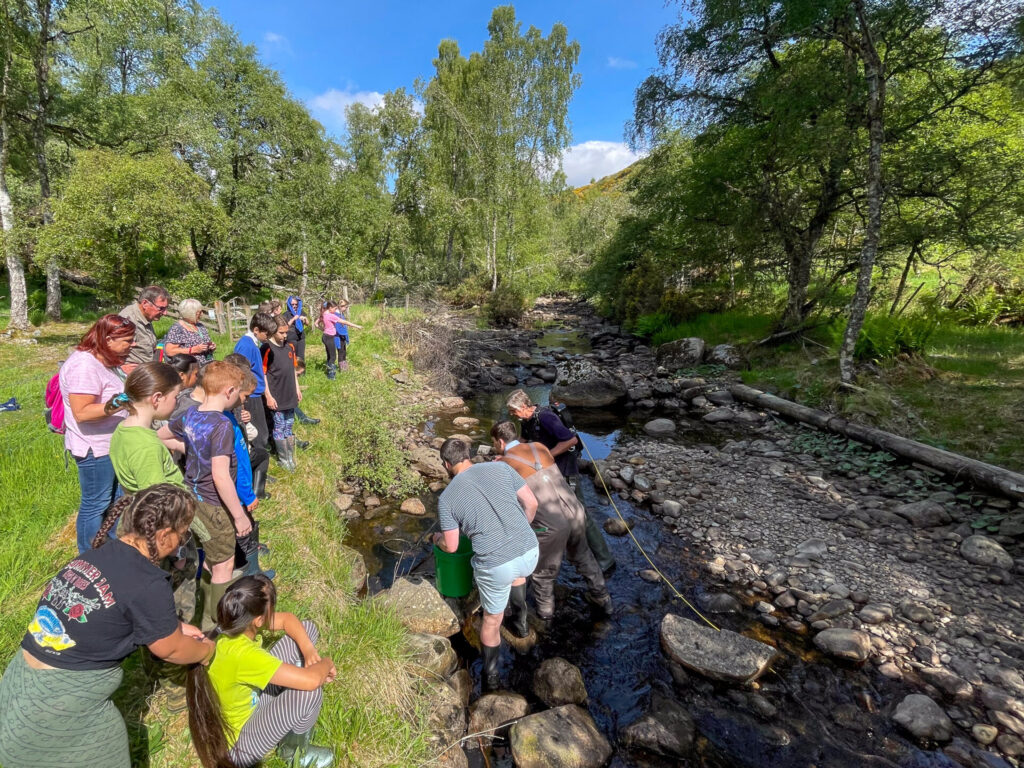
SFB biologists Atticus Albright and Steve Burns, alongside our devoted volunteer and Former Primary Head Teacher John Trodden, organised an inspiring and hands on field trip for the P5 and P6 classes from Newtonmore Primary. Assisted by our intern Charlie, the team guided the pupils to their local burn, (Allt Laraidh, better known as Aultlarie Burn) for a day brimming with discoveries of the natural world.
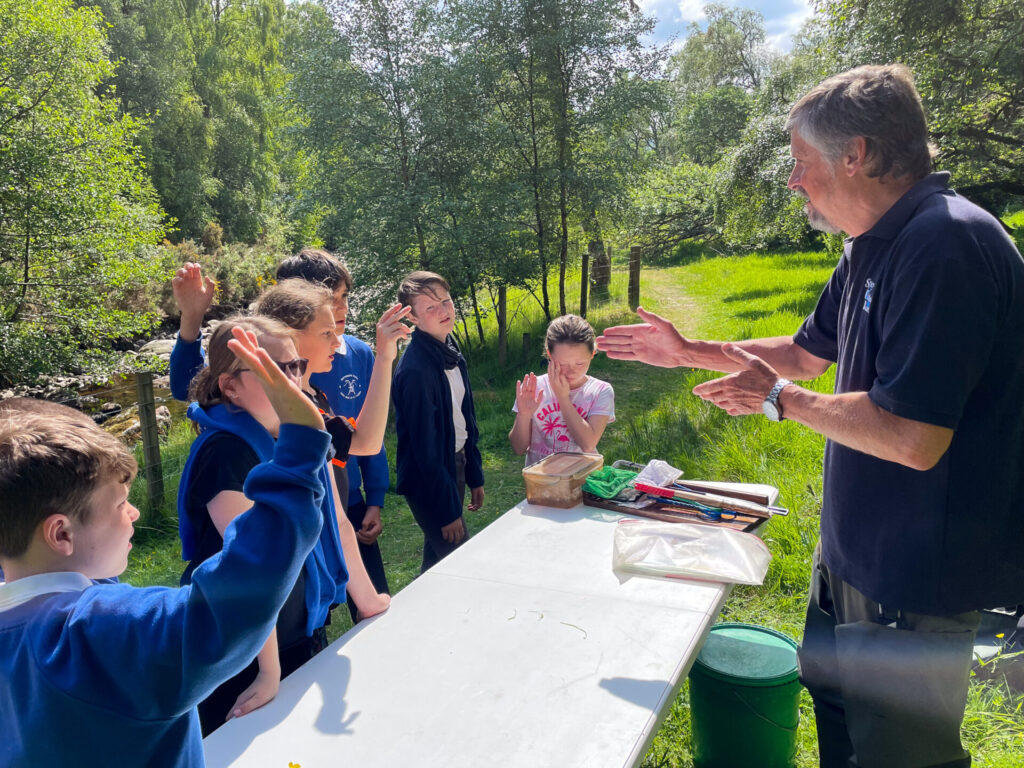
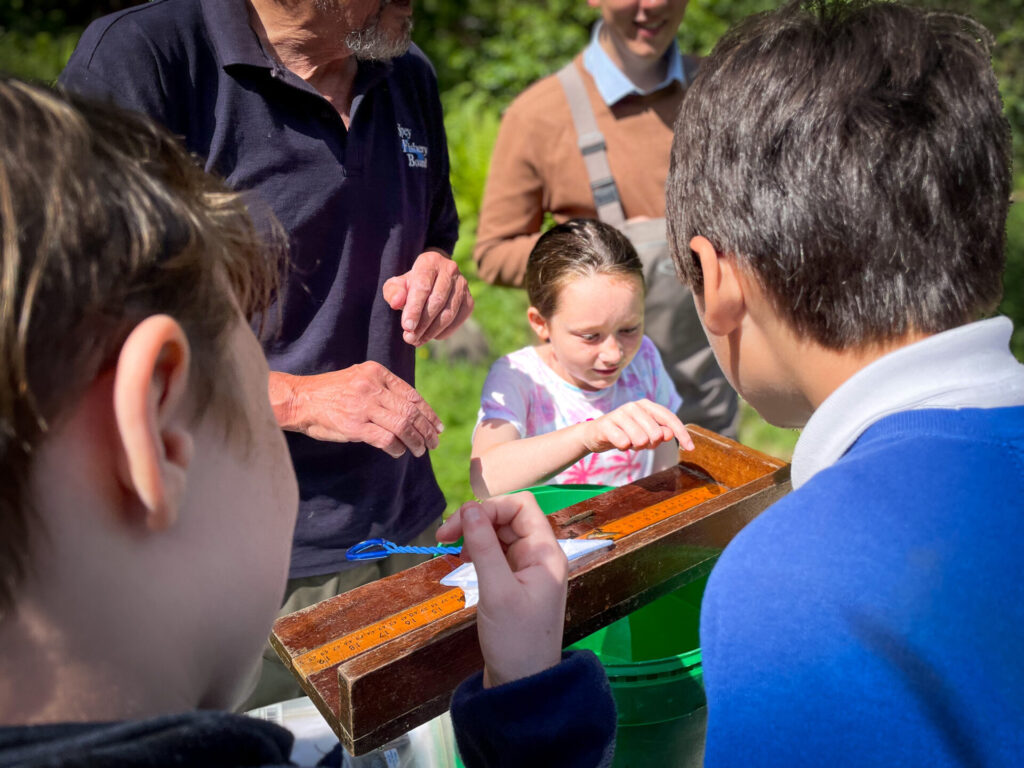
From observing an electrofishing demonstration to participating in an exciting bug and invertebrate hunt, the students had a front-row seat to their local aquatic ecosystem. The sight of an eel preparing for its astonishing 3000-mile migration proved to be a great opportunity to inspire students and led to a great discussion about long-distance fish migrations. With many salmon and trout also caught, the SFB biologists used this opportunity to introduce the pupils to the life and ecology of Atlantic salmon, as well as the importance of the conservation work happening in the Spey Catchment.
John Trodden, who organised the day’s activities, was pleased to see the children’s enthusiasm. He commented, “Living on the banks of the River Spey, it’s important that children understand the conservation work that is going on, especially with the current plight of Atlantic Salmon.”
John also led a Bugs and Invertebrates Hunt, where the children discovered a world of aquatic insects, including Mayfly Nymphs, Caddisflies, and Leeches.
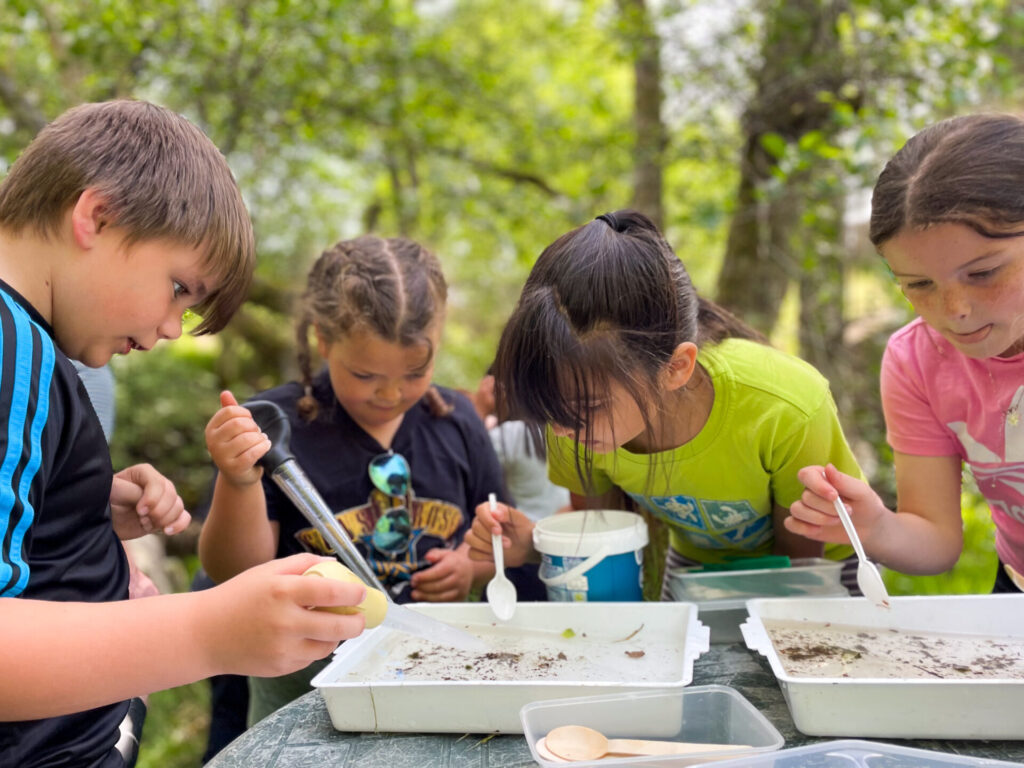
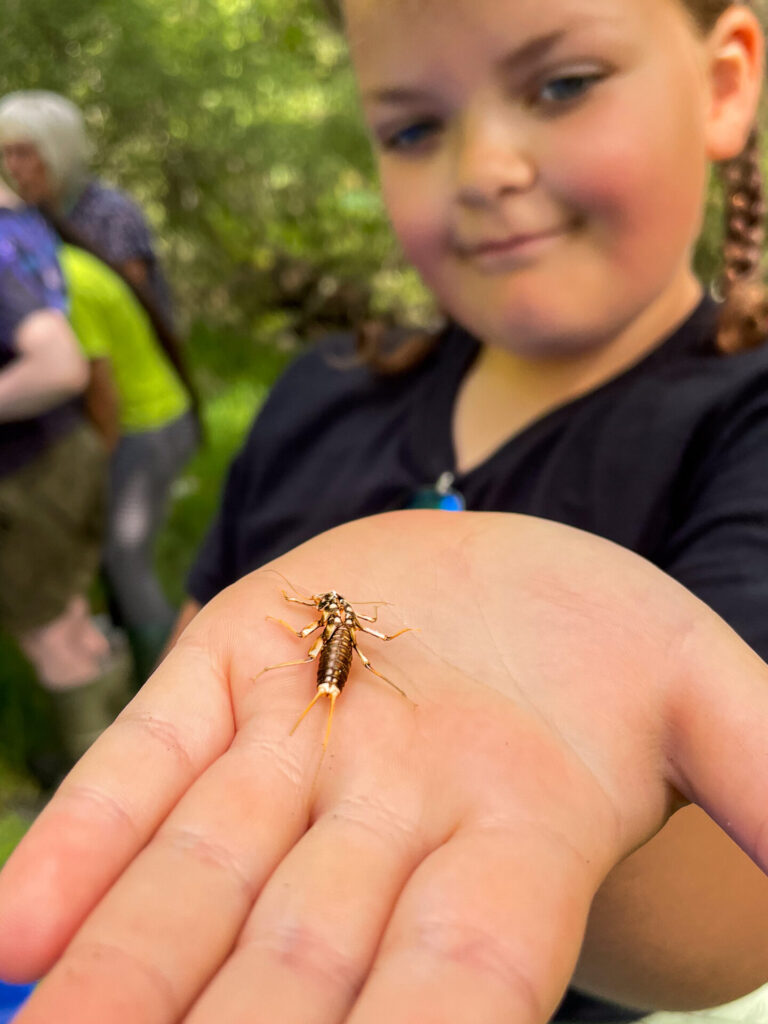
This year’s project offered an invaluable opportunity for pupils to engage directly with their local environment, sparking enthusiasm and curiosity. Pupil, Fergus, enthused, “I would love to do the whole project again.” Elizabeth admitted, “Watching the salmon grow in the classroom was really exciting, and then it was great going electrofishing,” Logan added, “I really enjoyed seeing all the colourful fish and seeing an eel for the first time.”
Paul Hughes, Spey Fishery Board Marketing Manager and former Geography Teacher reinforced the importance of such interactions, “These real-world experiences are invaluable for young learners. Not only do they foster an understanding of our local ecology, but they also ignite a passion for conservation among the younger generation. These pupils are future stewards of these precious ecosystems.“
Through these initiatives, we strive to inspire our young people to appreciate and protect the world around them.
For more information about our educational outreach and how you can support our work, please contact us at director@speyfisheryboard.com.
Finally, we would like to say a special thank you to John Trodden for his tireless work, enthusiasm and dedication to the Salmon in the Classroom project and other education initiatives throughout the year.
